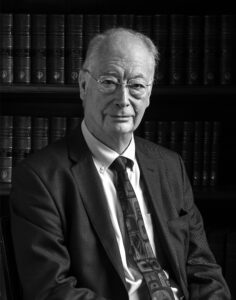The Centre for Astrophysics and Supercomputing (CAS) at Swinburne University of Technology in Melbourne invites applications from high-calibre students of any nationality for its PhD program. CAS is one of Australia's largest astronomy research institutes, with approximately 25 faculty, 20 postdoctoral researchers, and 40 PhD students. Swinburne has guaranteed access to the 10-m Keck telescopes, with our astronomers and students regularly obtaining time at the world's major optical and radio observatories. They also study gravitational wave sources with LIGO, and use Ngarrgu Tindebeek, the next generation Australian Supercomputer for theoretical and observational astrophysics. Application deadline March 13, 2026.
A list of research projects being offered can be found at this webpage. Applicants may express interest in one or more projects and are encouraged to contact potential supervisors prior to submitting their Expression of Interest. The deadline for Expressions of Interest (see associated web link) is 13 March 2026.
While some projects have guaranteed funding, most projects are conditional on receiving a University-wide competitively allocated scholarship. PhD scholarships include a tax free stipend, of approximately $34,700 AUD p.a., receive a tuition waiver, and have access to funding for travel to telescopes, international conferences, and collaborative meetings.
The Centre is located in the lively inner city suburb of Hawthorn, only minutes by public transport from Melbourne’s city centre. Melbourne is top ranked for its quality of life and as a destination for working abroad. Swinburne provides a positive and supportive work environment and comprehensive benefits, including vacation, sick, and parental leave, and thesis publication and relocation cost allowances.
We strongly encourage applications from women, Indigenous and First Nations peoples, people with disability, and candidates from diverse backgrounds. Swinburne is committed to the principles of equity, fairness and inclusivity and to a workplace free from discrimination. and has been recognised as a Workplace Employer of Choice for gender equality. CAS values its diverse work environment as has been acknowledged through a Silver Pleiades Award recognising commitment to inclusion, diversity and equity in astronomy.
Applicants should familiarise themselves with the University’s English language certification requirements, which are tied to Australian Government visa conditions. Applicants are requested to confirm that they satisfy these requirements at the time of submission of their expression of interest.
Please find here details.
